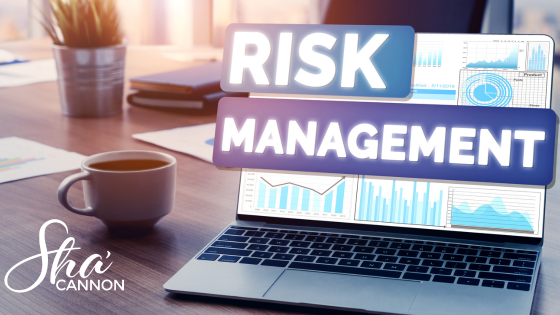Small business owners, and especially Solopreneurs, don’t really use words like operations to describe their businesses. That’s usually a corporate word. Likewise, Solopreneurs don’t use the words, or think enough about, risk management. Entrepreneurship can be a risk in itself, as well as, the obstacles encountered on the journey of owning business having risks. However, like entrepreneurship itself, there is rarely reward without risk.
- Risk or No Risk. Simply defined as actions or decisions that may have a negative impact, a risk is not always a risk. For Solopreneurs, what seems like a risk can be a fear instead. Mindset plays a huge part in business success for Solopreneurs in particular because they often do business and make decisions in a vacuum. Since solopreneurs often work independently, their definition of risk is shaped by their unique circumstances, responsibilities, and tolerance for potential loss. It’s understandable as they also tend to have fewer resources to work with and more to lose.
- Categories. Just as there are different parts of the business, there are different types of risk that can happen in the business. These risks can be categorized into several key areas: financial risks, such as cash flow issues or unexpected expenses; operational risks, like process inefficiencies or supply chain disruptions; market risks, including changes in consumer demand or economic downturns; legal risks, which involve compliance with regulations or contractual disputes; and reputational risks, where negative public perception or customer dissatisfaction can impact your brand. Understanding and managing these risk categories is crucial for maintaining business stability and fostering growth.
- Assessment. The key to risk is in the assessment. Properly evaluating the potential impact and likelihood of each risk allows solopreneurs to make informed decisions. This involves identifying potential risks, analyzing their consequences, and determining the level of risk tolerance. By doing so, solopreneurs can prioritize which risks to address immediately and which can be managed over time. Effective risk assessment also involves continuously monitoring for new risks and adjusting strategies as the business evolves, ensuring that the risks taken are calculated and aligned with overall business goals.
- Action. Proactive Actions involve anticipating and addressing potential risks before they occur, allowing solopreneurs to strategically manage or mitigate challenges that could affect their business. This forward-thinking approach helps minimize disruptions and create a stronger foundation for growth. At the beginning of this year, we talked about some things you needed to proactively look at as risks to mitigate. Check them out here. Reactive Actions come into play when a risk has already materialized. These actions focus on responding to and managing the consequences, ensuring that the impact on the business is controlled and minimized. By balancing proactive and reactive strategies, solopreneurs can effectively navigate both anticipated and unexpected risks, maintaining resilience and adaptability in their operations.
If you are an entrepreneur struggling to make your first 6 figures in business, you should be in our group -it’s FREE. We have 3 pillars of value that make it better than some paid groups 1) we actually come together to commune and build community for support 2) we collaborate to make each others’ businesses better and make money together AND 3) we have conversations beyond the articles that are transformational for your business growth!! Sign up at https://ShaCannon.info/group

